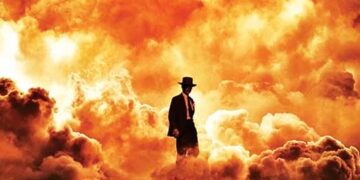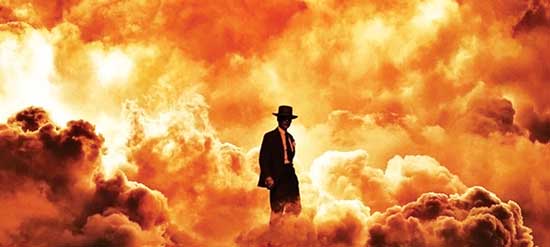 THE Christopher Nolan directed movie, Oppenheimer, not only made waves all over the world but has refreshed people’s memories of the horrors caused by the atomic bombings of Hiroshima and Nagasaki. Along with the Ukraine-Russia conflict, which generated debates about the threats to use nuclear weapons, the film has succeeded in bringing nuclear weapons to the forefront of public imagination in general, and security discourse in particular. The movie has also highlighted the dilemma of the creators of the nuclear bomb.
THE Christopher Nolan directed movie, Oppenheimer, not only made waves all over the world but has refreshed people’s memories of the horrors caused by the atomic bombings of Hiroshima and Nagasaki. Along with the Ukraine-Russia conflict, which generated debates about the threats to use nuclear weapons, the film has succeeded in bringing nuclear weapons to the forefront of public imagination in general, and security discourse in particular. The movie has also highlighted the dilemma of the creators of the nuclear bomb.
The film is principally adapted from two works – Pulitzer Prizewinning authors Kai Bird and Martin J. Sherwin’s ‘American Prometheus: The Triumph and Tragedy of J. Robert Oppenheimer’ and Martin J. Sherwin’s ‘A World Destroyed: Hiroshima and the Origins of the Arms Race’. The general criticism is that the film did not depict the trauma caused by the bombings of the two Japanese cities and for not portraying ‘the massive health or environmental toll of the sprawling nuclear weapons production complex.
Critics have also pointed out factual inconsistencies in the film. These range from not adequately depicting the decision relating to the use of nuclear weapon to the petition of scientists minus Oppenheimer against the use of nuclear weapons on Japan without giving it enough warning to the relationship of Oppenheimer with German scientists.
Uranium procurement
The film did mention procurement of uranium but did not elaborate where the uranium came from. The US had set up the Combined Development Trust to control the world’s uranium ore market under General Leslie Groves. The objectives of the trust were to secure the availability of uranium for the Manhattan Project and to prevent acquisition of uranium by other countries, especially the Soviet Union. If the Democratic Republic of the Congo was the principal supplier of uranium used for making the nuclear bombs, which were dropped on Japan, other countries were also targeted for procuring uranium for American nuclear weapons.
Although the film flags the role of nuclear scientists who fled Europe due to fear of persecution and some prominent nuclear bomb scientists such as Klaus Fuchs and Edward Teller figure prominently in the narrative, the role of the Jewish scientists in the nuclear weapons project is not properly depicted.
However, Professor Strew Prager at Princeton University notes: “Oppenheimer is terrific. But it’s just a movie … But will this substantial work of art make a difference to the future of nuclear weapons policy? I expect it won’t”.
Indian intelligentsia
During the Cold War, Oppenheimer became the subject matter of a specialised discipline like strategic studies, especially nuclear studies. With the end of the Cold War, though, it is safe to say that Oppenheimer was hardly a subject of discussion in the nuclear discourse. Even in the strategic studies courses, he almost disappeared.
This writer was introduced to Oppenheimer about 35 years ago by his doctoral thesis supervisor Prof Matin Zuberi, the Oxford-educated and left of the Center academic who came across as a great admirer of Oppenheimer during the Masters programme at JNU. Our very first class started with the Sanskrit shloka Oppenheimer apparently chanted during the trinity test. Zuberi also chanted the shloka with great pride: “sri-bhagavan uvaca kalo ‘smi loka-ksaya-krt pravrddho lokan samahartum iha pravrttah rte ‘pi tvam na bhavisyanti sarve ye ‘vasthitah pratyanikesu yodhah”.
While the sense of pride on Professor Zuberi’s face was apparent, the translation and interpretation of the verse, ‘Now I am become death, the destroyer of worlds’, which has generated debate and disagreements among many regarding the actual meaning of the verse, it seemed was not his concern. He focused on the broad Indian philosophy of the Gita which Oppenheimer had found relevant.
However, the verse and the meaning both have been over presented vis-à-vis Oppenheimer. The criticism by some Indian writers may also have not taken into account the context in which Oppenheimer was rendering the verse. For him, as for many, the Kaal means death. He was perceiving Kaal in terms of the devastating impact of nuclear weapons on humanity.

















